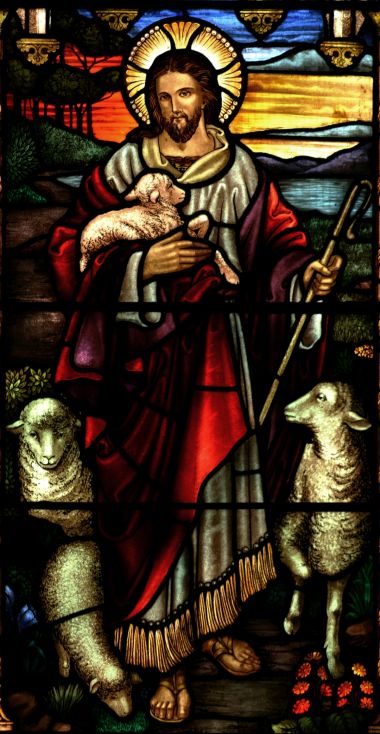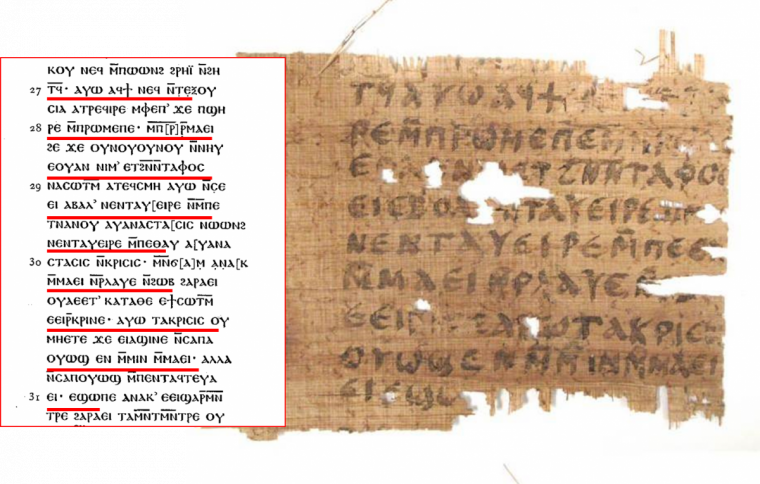What's the enduring fascination with Jesus and Mary Magdalene's relationship?

The question around the relationship between Mary Magdalene and Jesus has provoked seemingly endless fascination. Was Mary Magdalene what the canonical gospels have always portrayed her to be, a devoted follower and disciple of Jesus Christ, or was there the possibility that she and Jesus were husband and wife?
Two years ago, a fragment of papyrus made global headlines because of the tantalising suggestion it confirmed what the church down the centuries has always denied: that Jesus was a married man.
Cultural factors played into the sensation, not least the change in attitude towards the church in recent years and Dan Brown's Da Vinci Code still being fresh in everyone's minds, according to Dr Drake Williams of Tyndale Theological Seminary.
In a webinar hosted by the Forum of Christian Leaders on Wednesday, he said the papyrus fragment - dubbed "Gospel of Jesus' Wife" - was appealing to so many people because of the "growing suspicion about the church's authority" and the ongoing fascination with the person of Mary Magdalene and whether she had a romantic relationship with Jesus.
"Perhaps the church is hiding something from us…maybe they haven't told us all there is to the Christian faith," said Dr Williams, a Professor of New Testament Language and Literature at Tyndale Theological Seminary.
The papyrus fragment was given the name "The Gospel of Jesus' Wife" by the woman who presented it to the world in 2012, Dr Karen King of Harvard Divinity School, a name Dr Williams says is "unfortunate" because of what it implies.
The piece was sent to Dr King by an anonymous collector along with some fragments of a Coptic Gospel of John, but the original source and author were unknown.
No bigger in size than a business card, it contained just a few broken sentences in the Coptic language but there were a few in particular that caught the imagination of the popular media.
These were:
"Jesus said to them, 'My wife…"
"…she will be able to be my disciple…"
"As for me, I dwell with her in order to…"
Interestingly, Dr King has never concluded that the fragment is evidence that Jesus was married - and has since expressed regret at calling it the Gospel of Jesus' Wife. She instead interprets the broken sentences as evidence of the kind of early Christian debates that were taking place at the time around the questions of virginity and celibacy, against marriage and having children.
It's a perspective shared by Dr Williams, whose FOCL webinar looked at how the debate around the intriguing papyrus fragment has developed since 2012.
He believes that even if scholars were to be "generous" in what they could glean from the fragment in academic terms, it could at best be interpreted as the thoughts of a person in the second or third century church on family relations, and not in any way a record of Jesus talking about his own marriage.
"The main topic is to affirm that mothers and wives can be disciples," Dr Williams said.
No sooner had the fragment been presented to the world than biblical scholars were questioning its authenticity. Dr Mark Goodacre, Professor of New Testament and Christian Origins at Duke University, was among those to draw comparisons between the fragments of text in the Gospel of Jesus' Wife and the Gospel of Thomas.
"Interestingly, the only surviving version of the Gospel of Thomas is in the Coptic language," said Dr Williams.
But the strongest challenge yet to the fragment's significance was made earlier this year by Dr Christian Askeland, a scholar in Christian origins at Indiana Wesleyan University, who argued in the Tyndale Bulletin that the Gospel of Jesus' Wife is almost certainly a modern forgery because there was little doubt that the Coptic Gospel of John that was sent to Dr King with it was a forgery.
After close study of the writing, Dr Askeland concluded that the Gospel of Jesus' Wife and the Coptic Gospel of John fragment had been written by the same person. He further claimed that the Gospel of Jesus' Wife was copied straight from the Cambridge Qau Codex, edited by Herbert Thompson in 1924, an assertion supported by Dr Goodacre and ancient Coptic expert Alin Suciu, who noticed that the Gospel of Jesus' Wife even had the same line breaks as the Qau Codex.
Summarising his case on his blog, Dr Askeland wrote: "The shocker here is this. The fragment contains exactly the same hand, exactly the same ink and has been written with the same writing instrument. One would assume that it were part of the same writing event, be it modern or ancient."
Adding to the evidence against the fragment's authenticity, Dr Askeland further noted that the particular Coptic dialect used in the Gospel of Jesus' Wife was "totally unknown" in the period to which the papyrus has been dated. While the fragment from the Gospel of Jesus' Wife was found to be ancient in Harvard date testings, Dr Askeland said the dialect it is written in has not been found on any writings after the sixth century.

As far as Dr Williams is concerned, Dr Askeland's findings are winning the day.
"We must either switch our understanding of Coptic dialect or accept it is a modern forgery," Dr Williams said.
In terms of where the whole debate around the Gospel of Jesus' Wife leaves the church, Dr Williams believes there are some important considerations even in spite of its doubtful authenticity.
One is that part of the fascination with "secret Gospels" – be it the Gospel of Thomas, the Gospel of Judas, the Gospel of Mary and so on – can be traced to widespread Bible illiteracy in the West.
The other is that it's not likely to be the last time a piece of ancient manuscript surfaces that will challenge traditional understandings of Jesus and the Bible, and the church will need to be ready to handle these.
"Putting these into perspective, it's of great importance pastorally to the church to maintain the forest when a new tree might be sighted," he said.
"It seems to be a new tree, a new thing that we've seen, but let's not lose the overall picture just because something new and fascinating has come along and could come along in the future."
As for the enduring speculation outside the church about the nature of Jesus' relationship with Mary Magdalene, Dr Williams is convinced: they were not married; Jesus was not married.
"Mary Magdalene's name shows up 12 times within the Gospels but she is never said to be Jesus' wife," he said.
"Jesus is not any more intimate with Mary Magdalene than he is with other women in the New Testament Gospels.
"There is never any romantic hint given."











